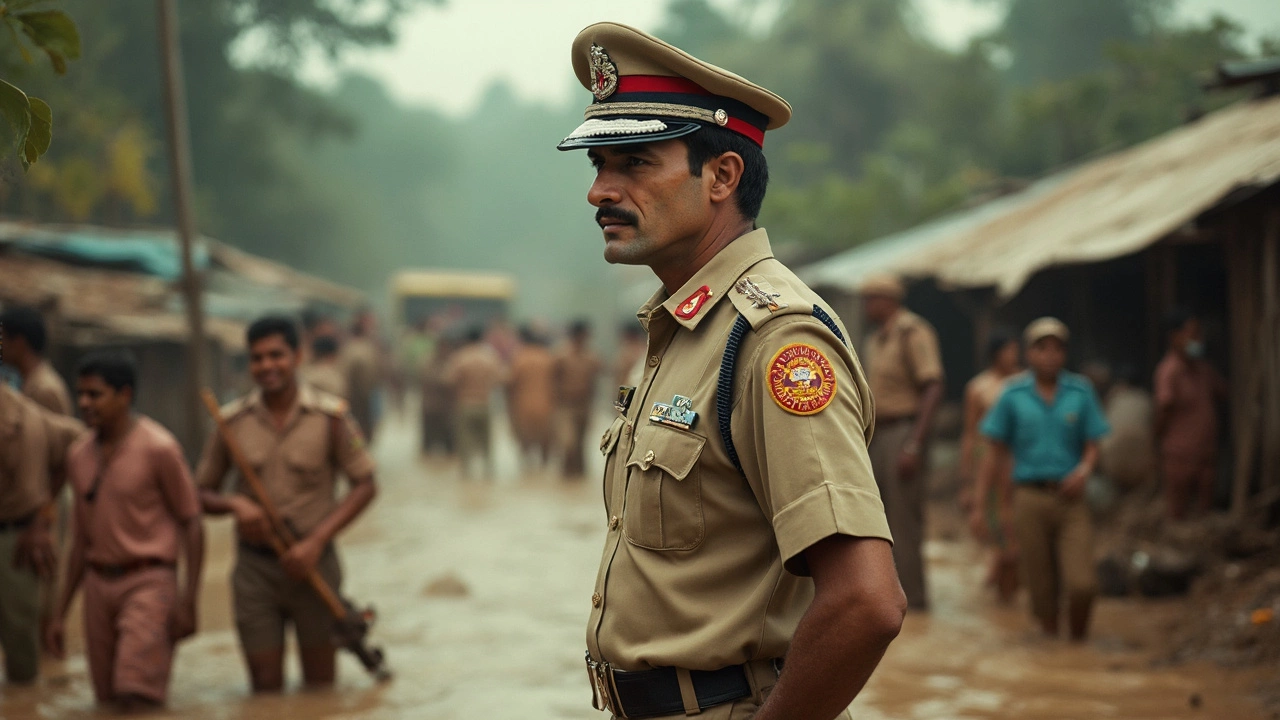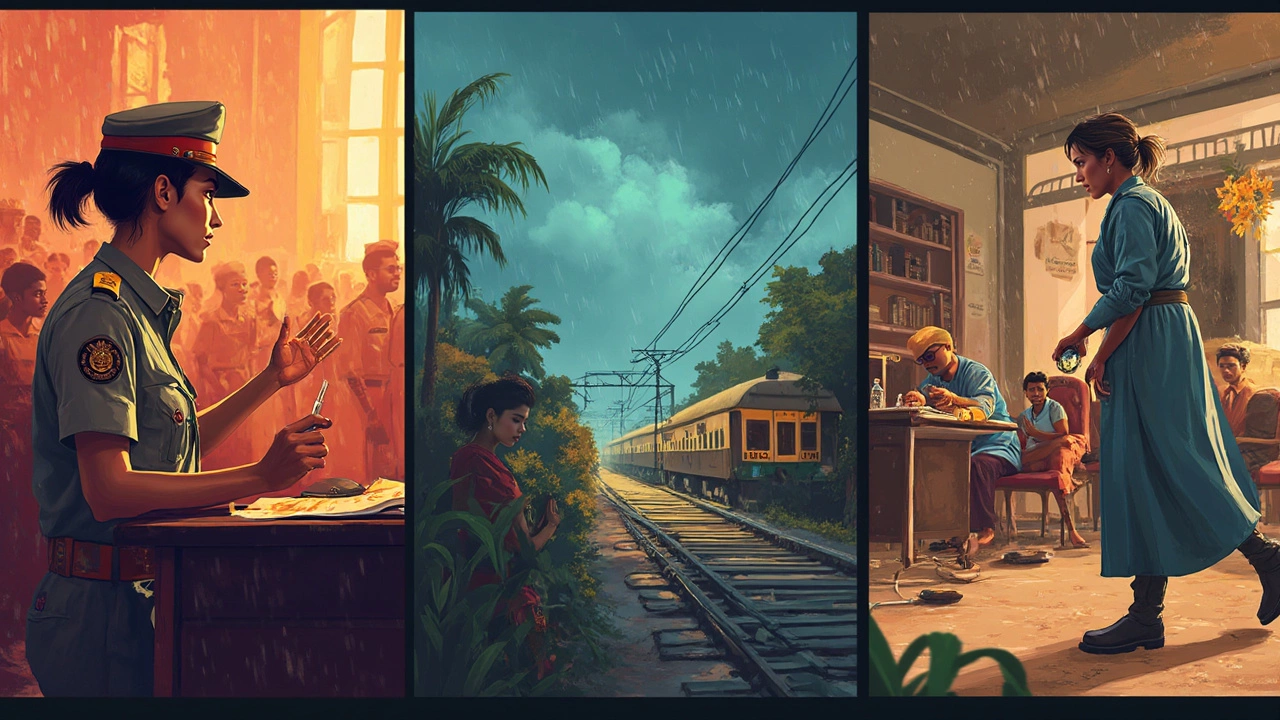Every year, nearly thirty million people apply for government jobs in India. If you scroll through the headlines every spring, you’ll see endless photos of crowded exam halls and stories of young folks spending years in ‘preparation mode’. But ask any ambitious candidate what the toughest government job is, and you'll spark a wild debate that goes way beyond paychecks. This isn’t just about fat salaries or job security anymore. Stress, competition, responsibility—the factors that make these jobs a real test of both brain and grit—are endless.
Let’s break down what actually makes a government job "difficult." Buckle up, because it’s not always the role you’d expect.
The Unexpected Stress of Indian Administrative Service (IAS) Officers
People love to talk about the power and prestige of IAS. After all, the Union Public Service Commission (UPSC) Civil Services Exam is often called “the mother of all exams” in India. Success rates stay below 1%—that’s statistically harder than getting into Harvard. But what most don’t realize is, the actual job kicks off right at the deep end. IAS officers can get posted to rural pockets with almost no infrastructure. On bad days, you’re not just an administrator—you’re the face between a nervous government and thousands of people demanding clean water, working schools, or simply some law and order after a disaster.
Work hours? Forget nine-to-five. The National Productivity Council once found that 70% of district-level IAS officers routinely clock over 12-hour days, with weekends often spent at field visits. Responsibilities only get heavier as you move up. You could be overseeing a district that’s the size (and population) of an entire European country. Every decision ripples into people’s lives—sometimes, those ripples become tsunamis if you slip up. The stress isn’t occasional—it’s baked into the job, every single week. Just look at newspaper reports on burnouts among young IAS officers who took the exam for the social prestige, but then cracked under relentless expectations.
And let’s not skip the impact on family life. If you’re single, transfers might sound adventurous. If you’re married or have children, shifting your life across cities, sometimes every few years, isn’t just tiring—it can rip apart personal routines. Amidst all this, the public regularly blames IAS officers for policy glitches, often because they’re the public face of the government. Social media makes it even worse, with trolls and threats now part of the landscape. If you want a quick hack for handling pressure—there isn’t one, except to develop the thickest skin in the business.
Indian Police Service (IPS): The Unseen Danger and Sleepless Nights
While most people picture police jobs with Bollywood heroics, the reality is way grimmer. IPS officers face not just brutal stress but real physical danger, especially in states struggling with crime, terrorism, or insurgency. Even after years of training, you might find yourself in a place where every phone call could be a threat to your family. Forget air-conditioned offices—your regular ‘workplace’ could be riot-hit streets or thick forests swarming with armed groups.
Numbers paint a sharp picture. In 2023, nearly 185 police officers died while on duty, most under violent circumstances. Reports from the Bureau of Police Research and Development (BPRD) say IPS officers often deal with double the normal stress load compared to other government profiles. Think about handling a mob of 5,000 angry protesters with just 200 constables behind you. Every minute, you’re dealing with split-second decisions that could turn ugly fast if mishandled. No scripted responses, no guaranteed backup.
It’s not just risks to life—mental health takes a blow too. Confidential studies at the National Police Academy show nearly 35% of new IPS officers report anxiety or sleep disorders in their first three years. Naxal-infested districts and communal flashpoints are infamous for zero relaxation and back-to-back emergencies. And when the public mood sours, you might take blame for troubles you didn’t even spark. No wonder the most common tip seniors give new IPS officers is: Don’t even try to chase perfection—your best win is staying alive and helping more people than you lose on tough days.

Life in the Indian Revenue Service (IRS): When Deadlines and Pressure Collide
IRS jobs rarely get the limelight, but talk to anyone in tax or customs—stress levels here are a slow burn. While the exam is easier to clear than the IAS/IPS, the real test starts in the cubicles and corridors of the tax department. These officers manage billions of rupees daily, and their smallest mistake can trigger huge losses or lawsuits. Pressure from both the government (for boosting revenue) and taxpayers (for leniency) turns work into a never-ending chess game.
Take March every year. “Tax Season” for IRS folks means 14-hour workdays, unopened WhatsApp messages, and coffee-fuelled nights. According to data from the Central Board of Direct Taxes (CBDT), an IRS officer in Mumbai might process nearly 350 high-value cases in a year, each requiring intense scrutiny. If you slip up and register a dubious tax claim as genuine, it’s not just your career on the line—sometimes it’s a media scandal. The job expects a detail-oriented mind, an ocean of patience, and nerves steady enough to fend off elaborate bribery attempts, legal traps, and often political muscle.
Tons of work also come with social isolation. Few colleagues, little public appreciation, and constant pressure to explain yourself when “raids” or “notices” make headlines. Many IRS officers warn: if you want glamour or public love, pick anything else. But if you love puzzles, logic, and can thrive without applause, some find this job deeply satisfying, though not easy by any stretch.
Indian Forest Service (IFoS): Hardships in the Wilderness
Everyone loves a walk in the park, but it’s a different story when you're the person in charge of 10,000 square kilometers of wild terrain, often without proper resources. IFoS officers are guardians of India’s jungles, rivers, tigers, and tribal rights. But behind the pretty photos with elephants or saplings, real life means hacking through bureaucratic blockages, facing threats from smugglers or poachers, and sometimes being stationed in remote villages for months with barely any amenities.
Check the stats—India’s forest cover is over 807,000 square kilometers, and barely 3,000 IFoS officers must manage it all. That’s a single officer for nearly 270 square kilometers—almost the size of a small city. Waterlogging, snakebites, and malaria become daily risks; some officers in Northeast India trek eight hours through dense forest just to reach a patrol point. And if forest fires break out or wildlife attack villagers, quick response is a must with hardly any support. Theft rings for timber or rare animals can include armed gangs, so it’s not just desk work at all. Data from the Ministry of Environment, Forest and Climate Change in 2024 showed 46% of IFoS postings in three states have no cellphone coverage—good luck calling for help.
On the upside, passionate officers say the job brings deep satisfaction, watching community and ecology thrive on efforts nobody else sees. But it takes a unique type of determination. When technology, backup, and amenities aren’t guaranteed, most people would quit. The forest service selects for those who’d rather endure it all and come back for more.

Comparing Challenges: Which Job Really Ranks the Hardest?
Everyone debates which of these jobs tops the “toughest” list. To make it concrete, here’s a direct comparison of some key parameters:
| Role | Entrance Difficulty | Physical Danger | Work-Life Balance | Burnout Rate |
|---|---|---|---|---|
| IAS Officer | Very High (UPSC ~ 0.2% qualified) | Low | Low | High |
| IPS Officer | Very High | Very High | Poor | Very High |
| IRS Officer | High | Low | Medium | Medium |
| IFoS Officer | High | Medium | Medium | High |
Tips from successful officers? Start by understanding what you really want—public power, logical puzzles, outdoor adventure, or something else. The “hardest” role isn’t one-size-fits-all. For some, late-night police patrols are less stressful than managing government files. For others, city transfers are tougher than dengue-carrying mosquitoes in the wild. Don’t simply chase the toughest role for bragging rights—pick based on your unique strengths and what type of challenge fires you up the most.
The wildest part: whichever path you pick, government jobs in India will test your limits in ways you never expect. And if you do pull through, it’s not the money or status, but that quiet sense of having survived something most people wouldn’t even try, that keeps you going. Not all heroes in these jobs wear uniforms or even get recognized. But ask their families, friends, and even critics—these are hands-down some of the toughest jobs you’ll ever see, anywhere in the world.
